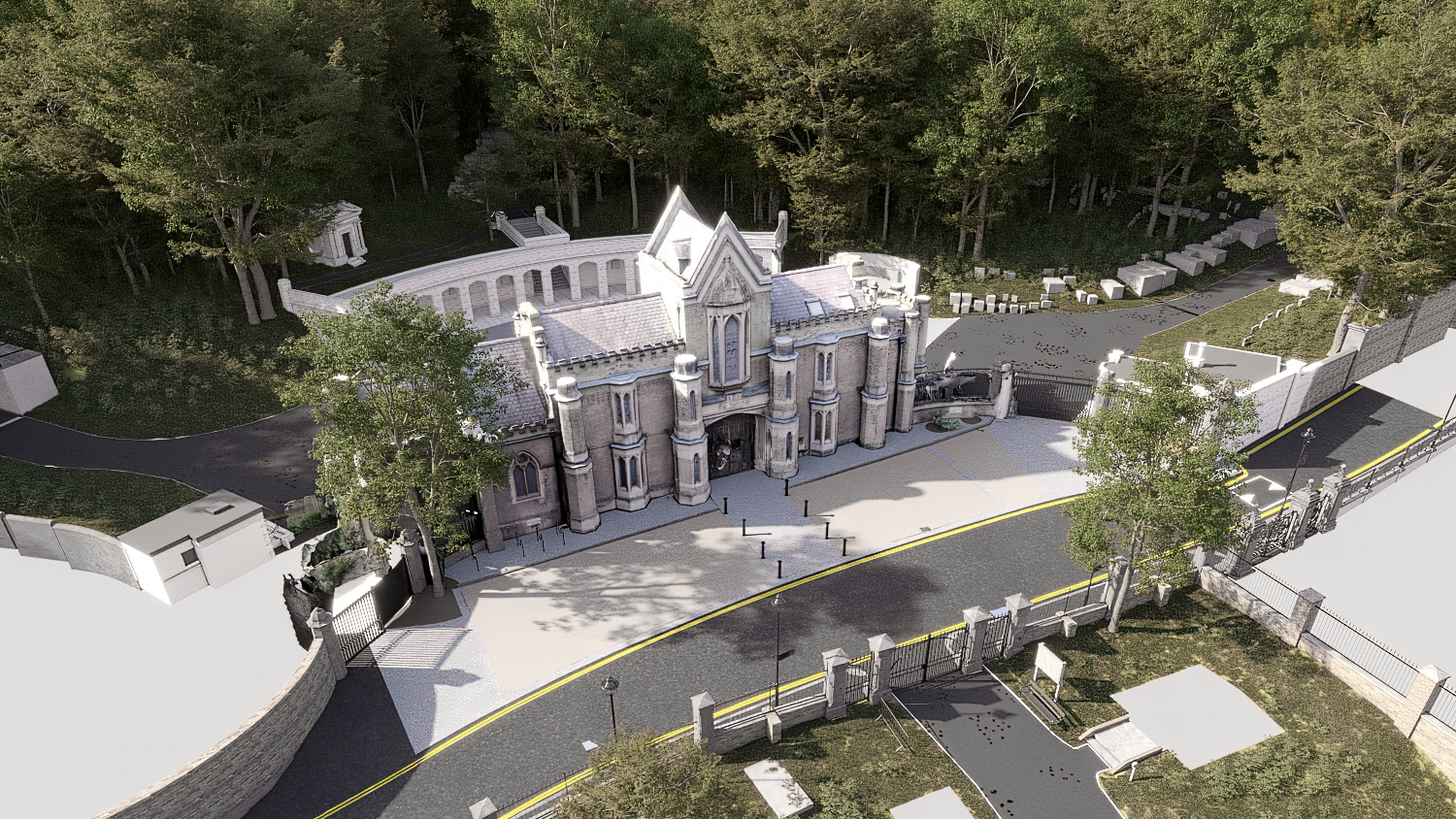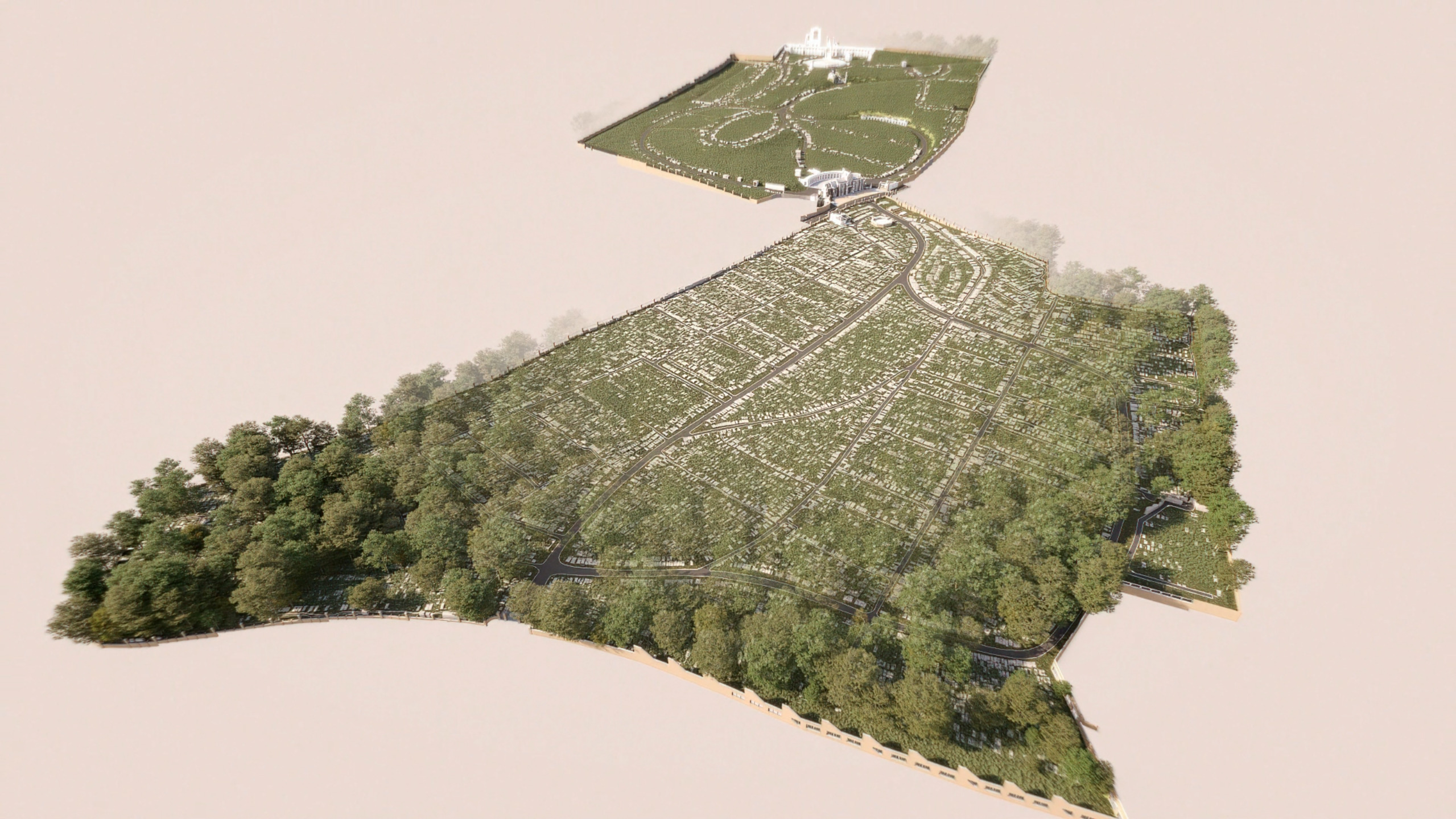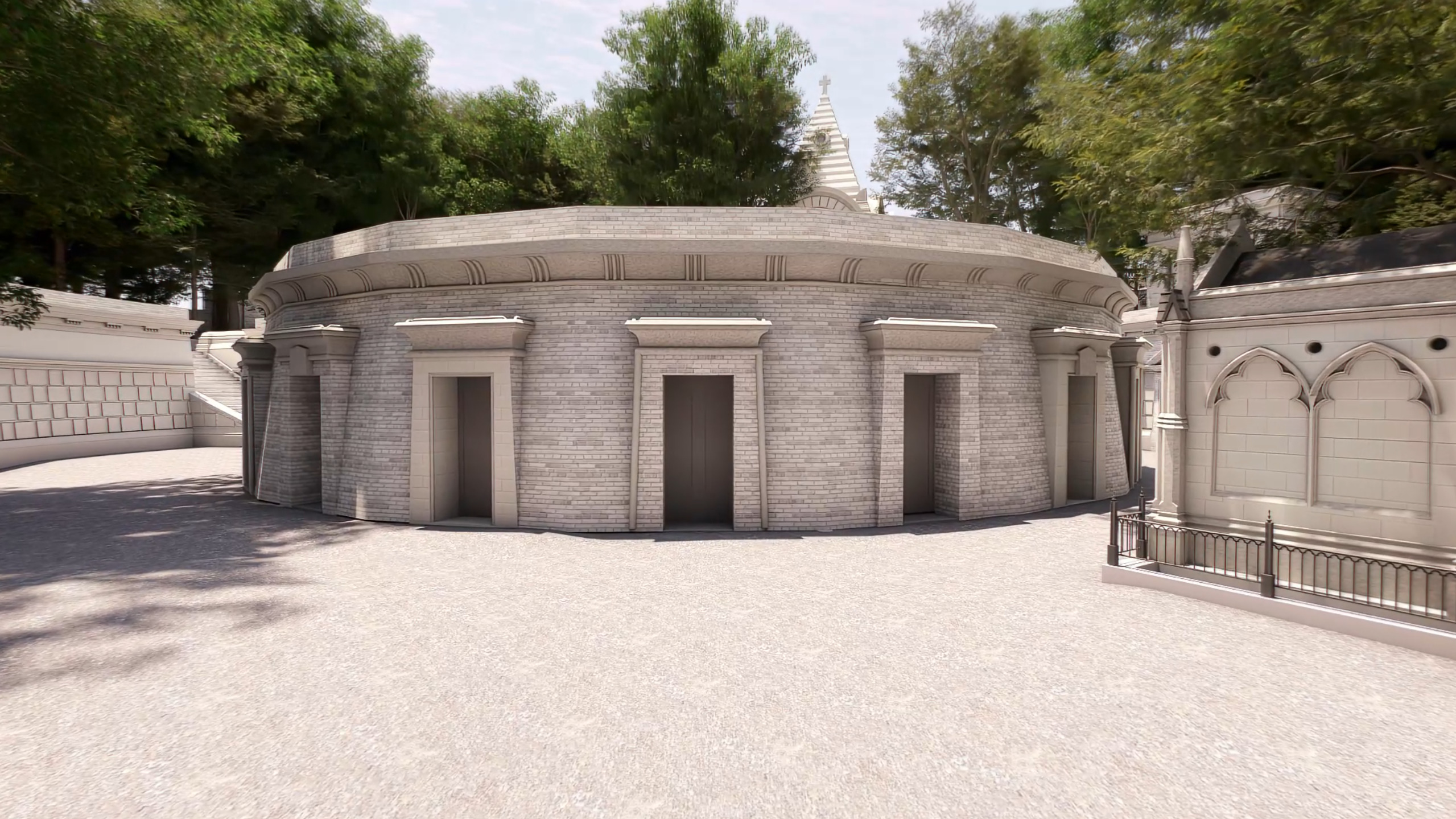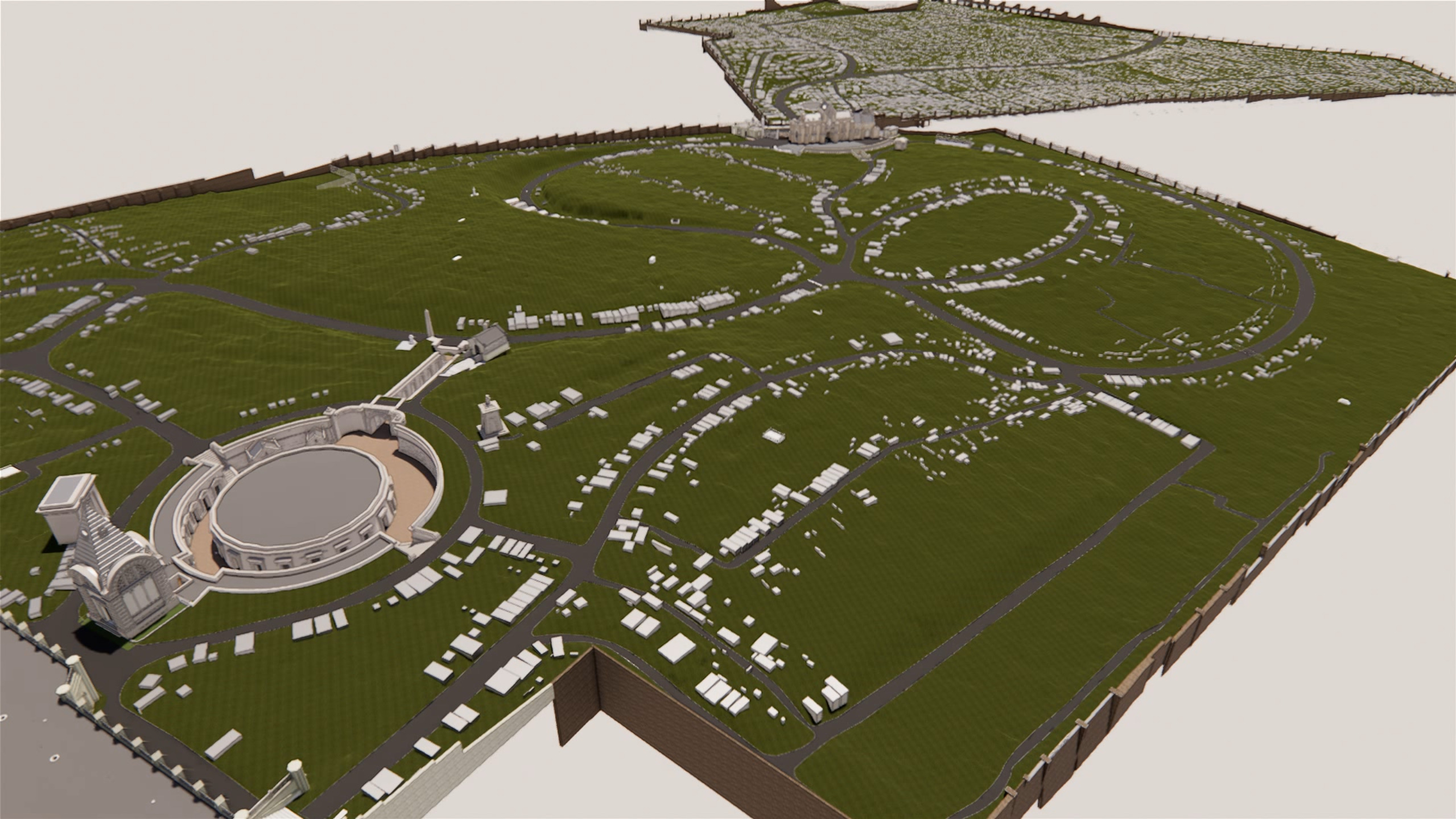Highgate Cemetery
North London’s Highgate Cemetery – the final resting place for the likes of Karl Marx, Douglas Adams, George Eliot and Jeremy Beadle – is being captured digitally as part of a 25-year masterplan to preserve the Victorian landmark.
Opened in 1839, Highgate Cemetery went into decline in the 1970s before being rescued by the Friends of Highgate Cemetery Trust. The charity has been focused on reversing nature, clearing access routes and repairing damage to the landscape and to buildings, caused mostly by neglect and self-set trees.
It is now known as Britain’s most popular and best-loved cemetery, with its history, living landscape and biodiverse ecology. The cemetery attracts more than 100,000 visitors a year, the majority of whom pay take part in guided tours to the various buildings, monuments and the most notable graves.
The Trust opened two competitions seeking architects to develop a 25-year masterplan for the long-term care of the site. Gustafson Porter + Bowman and Hopkins Architects won the contracts to deliver the vision of a sanctuary for generations to come, preserving a link from the past to the present.
The masterplan
This historic site is to be developed into a more manageable and sustainable landscape: a 21st century cemetery with widened visitor appeal and improved biodiversity. Maintaining the enchantment of the site is a key focus. Improving accessibility and introducing facilities for visitors, grave owners and cemetery staff is also a key consideration.
The architects required topographical and measured surveys to be carried out to produce accurate BIM-enabled models in Revit format, translated and derived from highly detailed 3D point cloud data, thereby allowing the design stage of the project to begin.
Challenging terrain
Highgate Cemetery is designated Grade I on the Register of Historic Parks and Gardens, and incorporates 80 listed buildings. The vast 15 ha site sits on a hill with serpentine pathways throughout. Accessibility is hindered by difficult terrain, especially in the West Cemetery.
It is an active site in ongoing operational use, with both private and public areas. Access to certain areas was therefore limited to specific times with security/escort requirements at the discretion of the client team.
The topographical condition, graves, monuments and various buildings were to be extensively surveyed. This included identifying which of the 5,300 trees were dying and would therefore need removing as part of the project.
The density of trees and heavy foliage throughout the site prevented some areas from being surveyed by terrestrial scanners. A drone was therefore flown over these inaccessible areas, capturing maximum coverage from a position of safety.
The scanning needed
Late in 2021, BIM specialist Digital Inc. was commissioned to undertake full 3D measured surveys of the vast site, including the landscape and surface features. It was tasked with developing 3D BIM-enabled Revit models and 3D photogrammetry models. A full set of 2D CAD drawings and orthophotos of 16 buildings and monuments were also required.
Nature and the elements have ensured that some mausoleums in particular cannot be accessed without specialist intervention. These assets therefore were only to be surveyed from the exterior, with plans for the internal survey to assess for structural integrity to be carried out in design stage 2 (planned to take place later this year).
Digital Inc.’s first task was to assemble a project team with the precise mix of skills and expertise required. Tom Boreham, BIM and survey manager at Digital Inc., says: “This was a complex project consisting of several teams with specialisms in 3D laser scanning, topographical land surveying, UAV [drones – ed.], photogrammetry, Revit modelling and CAD, as well as dedicated project management and quality control.”
Continuity paramount
Continuity throughout the project was vital. Having a dedicated project manager and strong QA procedures allowed Digital Inc. to monitor consistency of the project specifications’ level of detail, making sure that the outputs generated reflected the architects’ requirements.
Boreham details more of the demands that Digital Inc. faced. “The architects’ brief and requirements were for an accurate record (+/-20mm) of visible property and assets being collected digitally to produce a fully BIM-enabled graphical representation of the site,” he says. “This would enable the client to use and implement future redesigns and preservation of the Grade I listed site. It was also imperative for the model to be flexible enough for any future developments, such as change in regulations and specifications.”
The results
Digital Inc. tested the chosen method by creating reports and schedules within the models and constant checking to ensure it correctly produced quantifiable characteristics as required with the highest-possible levels of accuracy, visual representation and performance.
Boreham says: “Traditionally a project of this scale would have required up to three months just to survey the site. But thanks to the latest laser scanning and UAV technology, we completed all data capture in just four weeks.
“Upon completion of the site work, the captured data exceeded 1.5TB. We then cleansed and analysed it to visually depict the results within drawings and models.”
Ensuring clear and transparent communication throughout, Digital Inc. held work-in-progress demonstrations with the client to ensure they were satisfied with the results at various stages after the data capture. Upon client approval of a first draft of the model, Digital Inc developed the final results, using a combination of real-time rendering and post-processing workflows.
Boreham notes: “The final output ran to more than 200 drawings and models delivered in Revit, along with all captured imagery in various formats. The production time and cost remained within the proposed schedule and budget, and the output has more than satisfied the client’s and the design teams’ requirements.”
Bill Marsden, project manager at Artelia UK (the project’s consultant), adds: “Digital Inc. brought a dazzling array of technology and techniques to the measured survey brief we provided. They grasped the special, historic and sensitive nature of the project, and showed a positive approach throughout.”
Another successful project delivered as promised.




